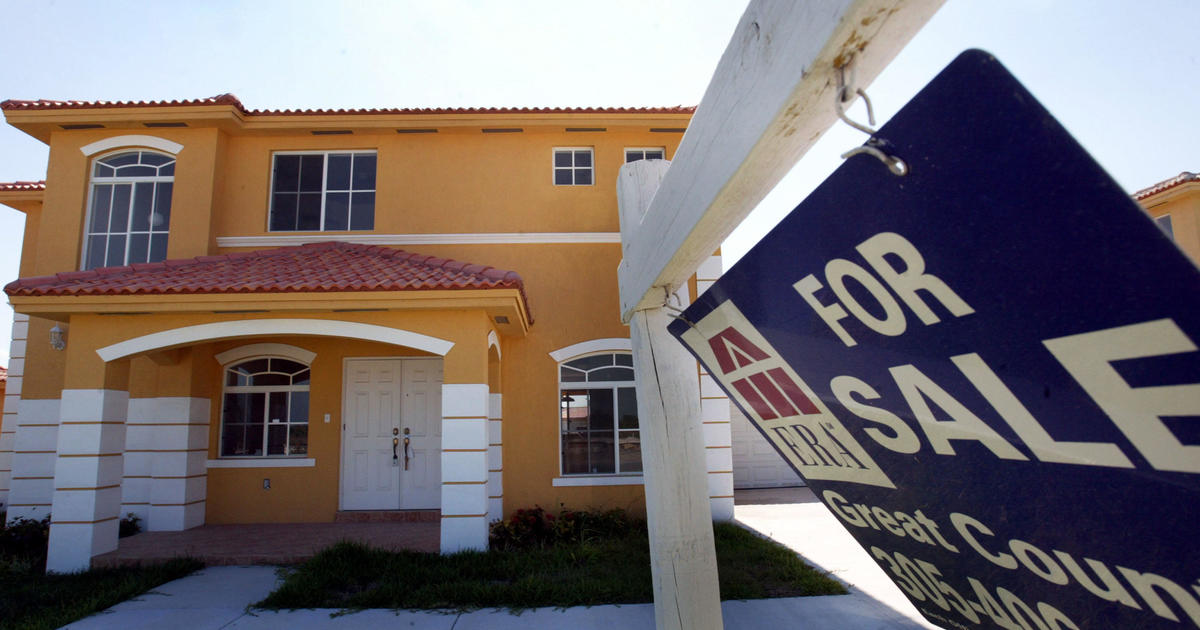Castro: Cubans Must Tighten Belts
HAVANA (CBS4) — South Florida Cubans facing tough economic times in the current U.S. recession may be interested to note that Cuban President Raul Castro has told legislators in that country that tightening belts is in order.
Castro said Saturday that the future of the country's revolution is at stake as the government tries to institute sweeping economic reforms, adding that the changes are meant to strengthen socialism — not replace it.
Cuba has announced it will lay off a half-million workers from bloated state-run enterprises, while simultaneously allowing more free enterprise. It has also begun to scale back many of the subsidies Cubans have come to rely on to compensate for salaries that average just $20 a month.
Castro has argued that the changes are needed to boost notoriously low productivity, and that once that happens, living standards will begin to rise. He urged his countrymen to embrace the changes, and warned that anybody who doesn't will be left behind.
"The life of the revolution is in the balance," Castro said in a two-hour speech closing out a twice-yearly meeting of the island's national assembly. He repeated his contention that the dollop of limited capitalism being injected into the economy does not mean the end of the revolution's ideal to create an egalitarian utopia.
"The strategic economic changes are being made to sustain socialism," he said. "They are to preserve and strengthen socialism, so as to make it irrevocable."
Still, Castro had a message to those who wonder if the Cuban government is serious this time around — since past economic openings have fizzled.
He said the changes are "the result of profound meditations and analysis, and we can assure you this time there will be no going back."
He urged Cubans not to listen to naysayers — particularly in the United States — who have dismissed the economic changes as window-dressing.
"Our adversaries abroad, as we might expect, have challenged our every step, first by calling the measures cosmetic and insufficient and now by trying to confuse public opinion by prophesying a sure failure," he said. "Sometimes it seems that their most heartfelt wishes (for Cuba's failure) prevent them from seeing the reality."
He also warned his countrymen that they'll have to work in the new Cuba, and can no longer rely on the state for handouts.
"Many of us Cubans confuse socialism with freebies and subsidies, and equality with egalitarianism," the president said.
Castro also announced that a major Communist Party Congress where many of the reforms are to be enshrined will be held April 16-19, with the end date coinciding with the 50th anniversary of Cuba's victory in the U.S.-backed Bay of Pigs invasion. The government had previously said only that it would be held in April.
Cuba's economy minister, who also spoke to the legislators, said the government expected the economy to grow by 3.1 percent in 2011, up from 2.1 percent this year.
Revolutionary icon Fidel Castro was not present. Normally a ceremonial seat is left empty for the former president, with a glass of water set out in front of it. But the tradition was dispensed with this year.
Raul Castro also used the speech to blast Washington for its policies toward Cuba, saying it has shown itself completely closed to better ties.
"There isn't the slightest willingness on the part of the United States to change the policy against Cuba, not even to eliminate its most irrational aspect," he said. "The U.S. policy on Cuba does not have an ounce of credibility."
Washington has maintained an economic embargo on the communist-run country for 48 years, and effectively bars most U.S. tourists from visiting. Despite hopes by many that President Barack Obama would usher in a new era in Cuban-U.S. relations, little has changed and the countries remain enemies.
Two U.S. diplomatic cables from late 2009 recently released by WikiLeaks indicate Raul Castro was perhaps hoping to change that, requesting through a senior Spanish diplomat that a secret back channel be opened between him and the White House. The overture was rejected, however, and Castro was told that if he wanted to engage he should do so through normal channels.
Cuban officials have expressed exasperation that Washington is not more interested in talking, noting that the government has released many of the island's dissidents and that they are reforming the economy to inject more aspects of the free market.
A State Department spokesman on Thursday said Cuba had not made serious efforts to change the country's political system — dominated since 1959 by Castro and his brother Fidel — or truly reform the economy.
The U.S. Census Bureau released statistics in September that indicate that the number of Cubans in Miami-Dade County make up 54 percent of all Hispanics in the region.
(© MMX CBS Television Stations. All Rights Reserved. This material may not be published, broadcast, rewritten, or redistributed. The Associated Press contributed material for this report)



